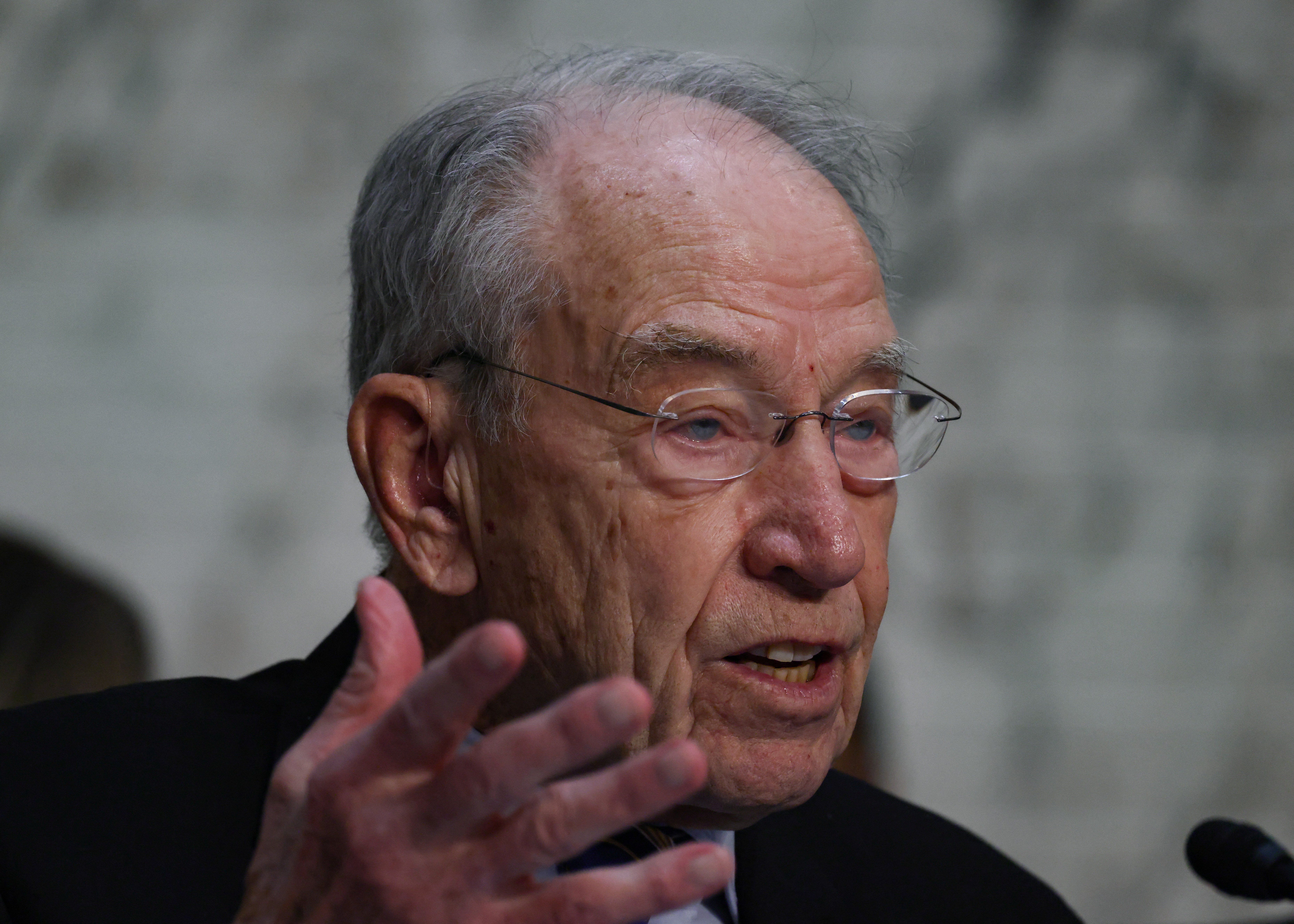At the start of the confirmation hearing of Emil Bove to the Third Circuit Court, Senate Judiciary Chairman Chuck Grassley (R-IA) invented a new rule that restricted the questions and answers from Bove, claiming that it fell under a "deliberative process privilege."
Sen. Sheldon Whitehouse (D-RI) took issue with the rule he outlined in the opening statement, saying that never has such a restriction been invoked for a witness before their committee.
"Before my time begins," Whitehouse said, "I would like to make a point of order. You indicated in your opening remarks that the committee be constrained by the deliberative process privilege and by the attorney-client privilege in the examination of this witness. My understanding is that Congress has never accepted the constitutional validity of either such privilege."
Whitehouse added he "does not intend to follow that direction" because he does not feel it was correct.
Sen. Richard Blumenthal (D-CT) also raised the concern with Grassley.
"This witness has no right to invoke that privilege. It's a privilege that belongs to the government of the United States," said Blumenthal. He remarked that the deputy attorney general was behind Bove and said that the deputy AG had not invoked privilege on behalf of the United States."
The Connecticut senator also added that Bove was irregularly invoking the privilege. "We've never accepted that tactic on the part of a witness," said Blumenthal. "This kind of selective revoking of a privilege smacks of evasion and defiance and reflects on us as a committee if we accept it in this context."
Legal analysts across Bluesky noted the controversy.
"Both Senators Blumenthal and Whitehouse make a point of order that deliberative process and attorney-client privileges don't apply in judicial nominee hearings. Whitehouse points out that Bove is using the privileges selectively, and doesn't even have the right to invoke it," Allison Gill said.
You can watch both remarks here or click here.
- YouTubewww.youtube.com
- YouTubewww.youtube.com
